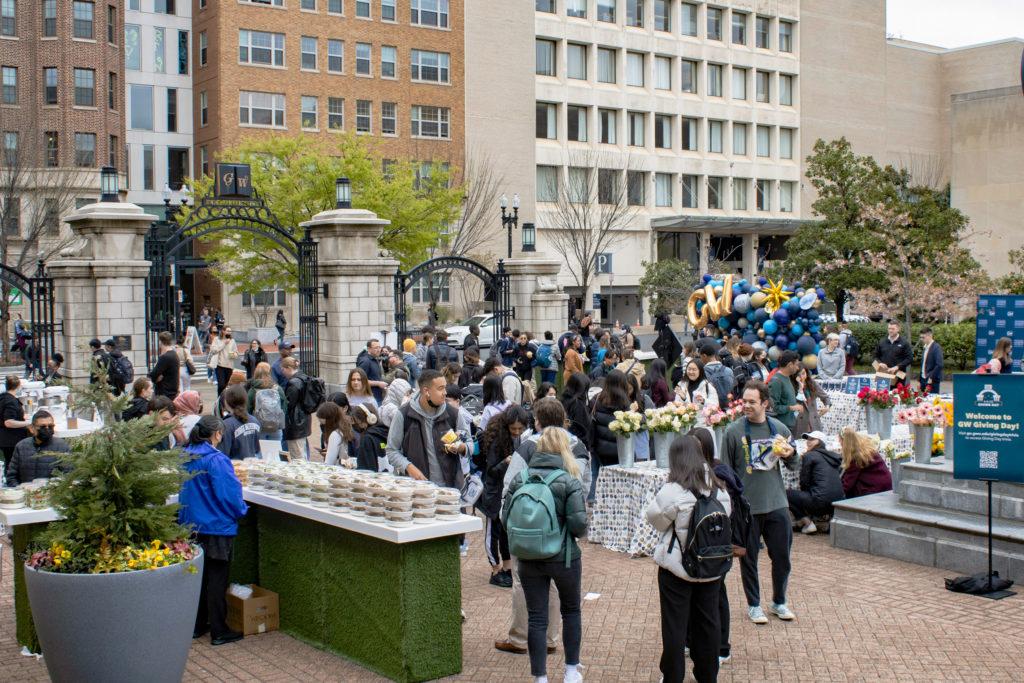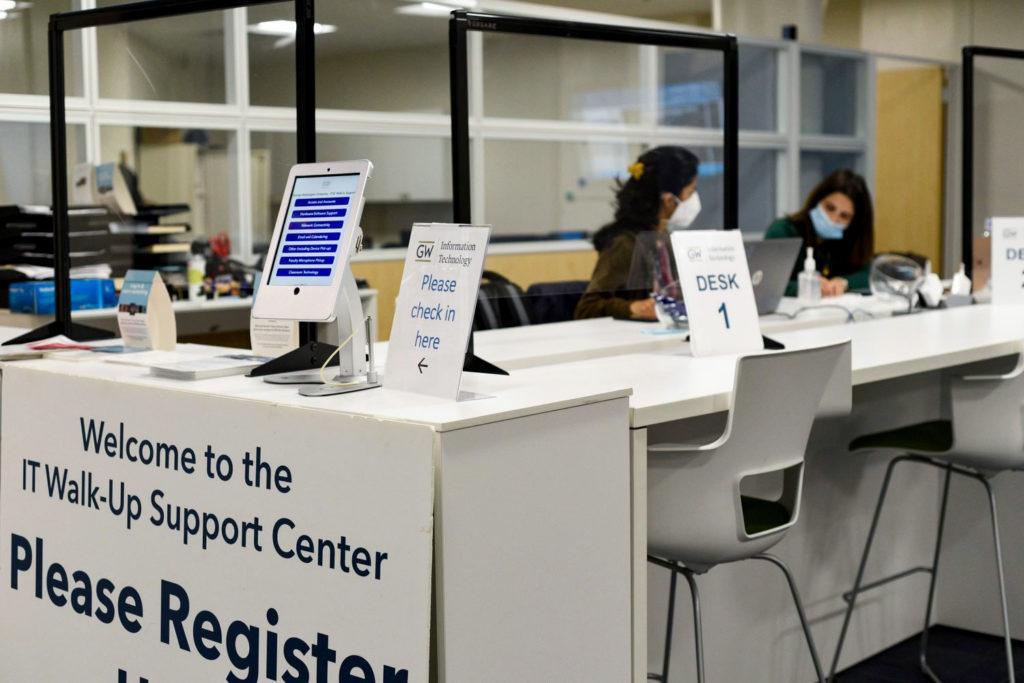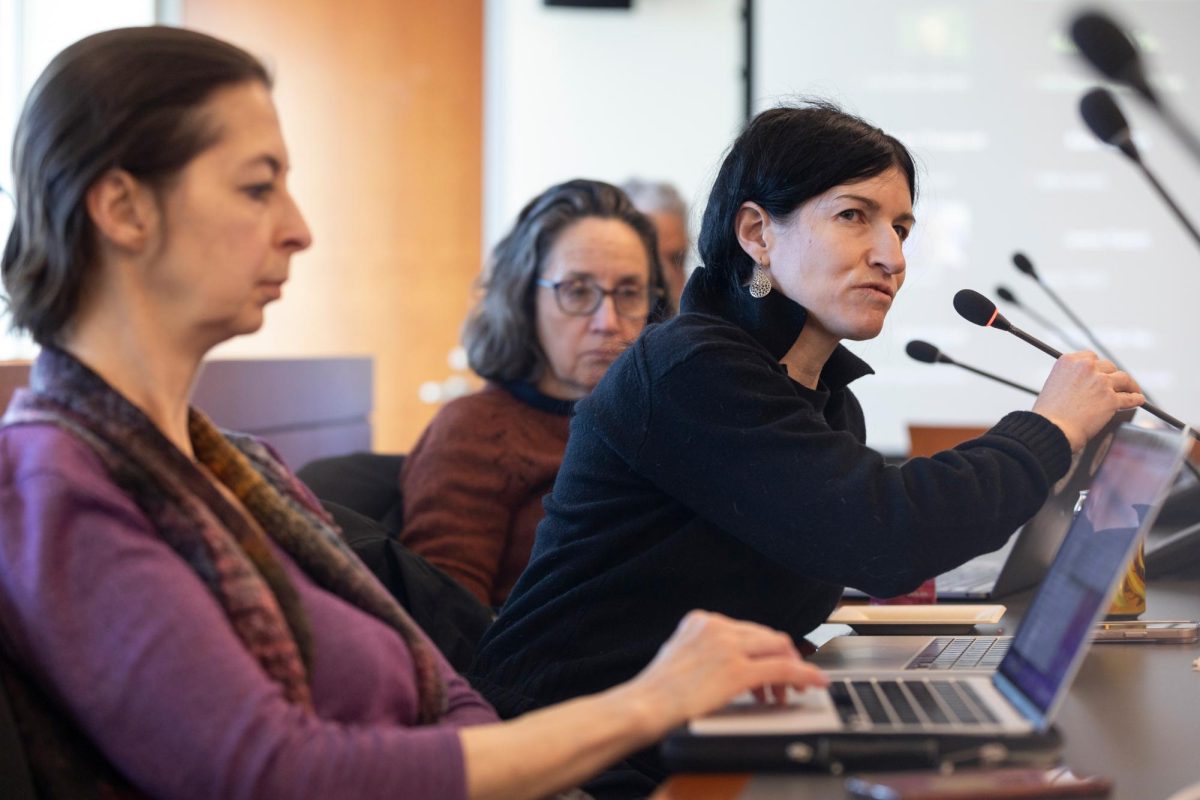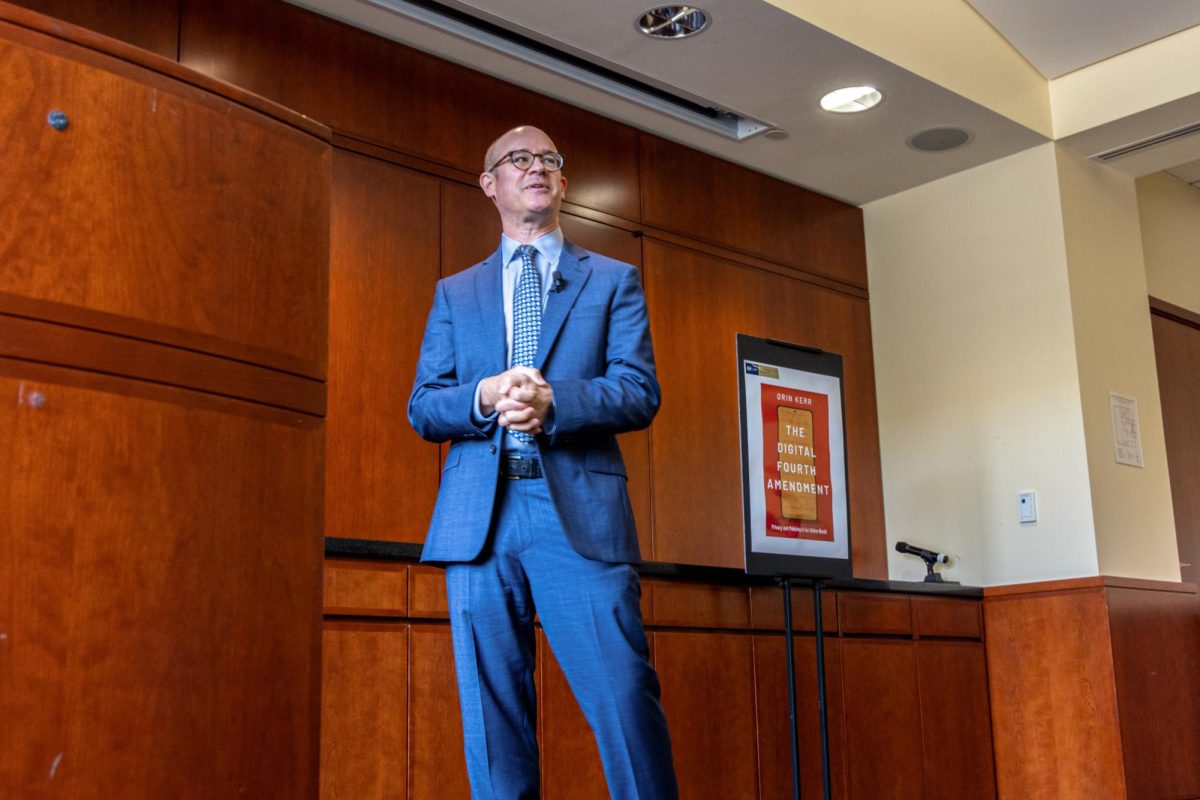GW’s third annual Giving Day amassed more than $1 million for the second consecutive year but fell short of the $1.6 million raised last year.
The University received $1,282,437 in donations from Tuesday to Wednesday during its annual Giving Day – where officials try to fundraise as much money as they can in a 24-hour period – about $400,000 below last year’s $1.6 million total. The Columbian College of Arts & Sciences received $219,832 from a total of 425 donors – the largest total donation to one of the funding options – which the school will use to fund the Cisneros Hispanic Leadership Institute and Trachtenberg School of Public Policy and Public Administration’s Catalyst Fund.
A total of 3,193 donors gave a financial contribution to the University, the largest amount of donors that have donated to GW’s Giving Day, while also surpassing GW’s 2,750 donor goal. About 2,500 donors donated to last year’s Giving Day, and about 2,100 donors donated during the first Giving Day in 2021.
Daniel Burgner, the executive director of annual giving in the Division of Development and Alumni Relations, said the Giving Day advocates, donation promoters that have the chance to earn prizes and compete to win a grant that funds an area of their choosing, “secured” 450 donations and “pushed” to achieve the 2,750 donor goal.
“As a community, we surpassed the goal by over 400 donors!” Burgner said in a statement on the Giving Day website. “Thank you for making this day a victory for the Buff & Blue.”
Officials altered fundraising strategies this year, including shifting from a single, 24-hour day to a 24-hour event spread across two days and focusing on renewing donations from “loyal” donors that have submitted donations in prior years.
Students could donate at in-person events in Kogan Plaza, the Mount Vernon campus, the Milken Institute of Public Health, the School of Medicine and Health Sciences and the School of Nursing.
Donors were able to contribute a minimum of $5 through the online giving form to an area of their choice, including athletic teams or scholarships like the Elliott Equity Fund, which provides financial aid to students in the Elliott School of International Affairs who are from historically marginalized groups.











